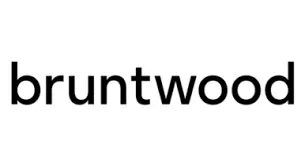Digital Marketing jobs come in all shapes and sizes and relate to the online or internet campaign activities that companies and advertising agencies undertake. They will focus on the digital channels available to them, from email marketing to the latest in voice search or Ai and automationtechnology, which will all form part of a digital marketing campaign. Some of the roles will be quite technical, but others may require a larger degree of communication or interpersonal skills, to pull together different departments for a common marketing objective or maintain the relationship between a client and agency.
Digital Marketing Jobs
We specialise in Digital Marketing jobs, connecting passionate professionals with cutting-edge roles in the digital marketing industry.
Experts in Digital Marketing Recruitment
We live and breathe digital marketing jobs and have done since well before our launch because many of the founders of The Candidate previously worked in these roles. We’re experts, so if you’re a candidate or client, speak to us now!


Progression in a role will depend on the levels of passion and interest the candidate has in their role. By keeping in touch with the latest developments (and the sector is developing all the time) you will have a far greater chance of progressing. Companies and agencies want candidates who have tried and tested different methods, those who know the pitfalls and know where the rich veins of returns in their spends lie. With attractive salaries on offer and the chance to work in a modern and cutting-edge sector, look no further than having a career in Digital Marketing.
Meet Our Team
Featured Jobs
Our Expertise
The Candidate is the leading marketing recruitment agency sourcing the UK’s top talent in digital, marketing, analytics, creative and technology. We’re proud to support the future of UK businesses and beyond.
Digital
We're the best recruitment agency for digital marketing jobs in the UK, having placed thousands of candidates in digital jobs since 2012. Our extensive database and effective sourcing techniques mean that we’re the experts in digital recruitment, identifying the best candidates for our clients’ openings in quick timescales resulting in long-term placements.
Marketing
We understand how to recruit the best candidates for the marketing jobs we recruit for as many of us are from marketing backgrounds. Coupled with an outstanding recruitment service, we help candidates develop their marketing careers in some of the best job opportunities in the UK. Whether it’s a marketing agency position, or client-side opportunity, we’ll work to ensure the best recruitment experience and outcome for clients and candidates.
Analytics
Data and analytics jobs complement the marketing recruitment we undertake for many of our clients. We’ve built a large database of many top-quality candidates and have a record of working with clients to effectively place them in both permanent and contract roles. Our specialist recruiters in this area will advise you on the level of candidate you’ll need to ensure effective recruitment to complete any project or ongoing role.
Creative
We have many creative jobs available at all levels across this inspiring and ever evolving industry. We’ve worked with candidates throughout their creative careers and worked with many agencies and companies on the best creative jobs in Manchester and across the UK. Our creative consultants will work to identify the best candidates, whether they are active or passive, from our extensive creative database.
Technology
Work with the best tech recruitment agency who has placed candidates in many tech jobs, including recruitment of developers of all types, engineers, leads, designers and project managers to name a few. Our tech recruitment consultants understand emerging tech and what clients need in order to fulfil their projects. We have candidates available to immediately fill contract and permanent roles.

Latest Blogs
Trusted Recruitment Partners
We're recruitment experts, partnering with industry leaders across all sectors to fill their talent gaps. Let us help you find the perfect fit for your business, too.
Contact Us
Whether you're seeking your next career move or need expert recruitment advice in Marketing, Digital, eCommerce, Creative, Technology, Data, BI or Analytics, contact us for confidential, specialist advice.













